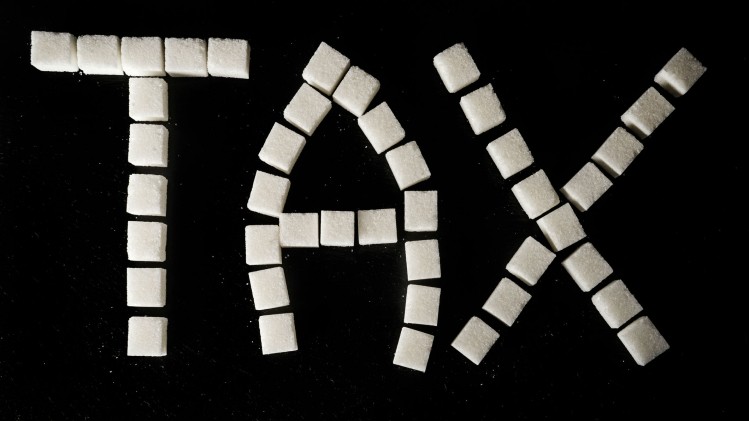Talk not tax: Will Asian regulators think twice after WHO expert panel stops short of calling for sugar taxes?

Manufacturers in Asia will be hoping that this absence of an explicit recommendation of sugar taxes will help persuade regional governments to adopt a broader range of tactics to combat obesity and diabetes.
The WHO Independent High-level Commission on Non-Communicable Diseases (NCDs) was convened by Director-General Tedros Adhanom Ghebreyesus in October 2017, to advise on how countries can accelerate progress towards achieving the United Nations (UN) Sustainable Development Goals (SDGs) target 3.4 — a one-third reduction of premature NCD mortality by 2030.
It was suspected that the 21-member independent commission co-chaired by Dr Sania Nishtar, a former federal minister of health of Pakistan, would signal support for a sugar tax in order to combat obesity and diabetes but it was unable to come to a consensus.
“There was broad agreement in most areas, but some views were conflicting and could not be resolved. As such, some recommendations, such as reducing sugar consumption through effective taxation on sugar-sweetened beverages and the accountability of the private sector, could not be reflected in this report, despite broad support from many Commissioners,” stated the recently-released report.
Despite this, Ghebreyesus told a press conference: “One thing I would like to assure you is the WHO position cannot change because of this report. This is because youth consumption of sugar is associated with obesity.”
“At the same time, taxing sugar was shown to reduce consumption in many countries. Not only that, the money from tax can be used to strengthen the health system.”
WHO’s call for sugar tax
In October 2016, the WHO made a non-binding recommendation that governments should impose a 20% sugar tax.
According to the report Fiscal Policies for Diet and Prevention of Non-Communicable Diseases, fiscal policies that lead to at least a 20% increase in the retail price of sugary drinks would result in proportional reductions in consumption of such products.
It said this reduced consumption of sugary drinks would mean a lower intake of free sugars and calories, improved nutrition, and fewer people suffering from overweightness, obesity, diabetes and tooth decay.
Dr Douglas Bettcher, director of WHO’s Department for the Prevention of NCDs, had said, “Consumption of free sugars, including products like sugary drinks, is a major factor in the global increase of people suffering from obesity and diabetes.”
“If governments tax products like sugary drinks, they can reduce suffering and save lives. They can also cut healthcare costs and increase revenues to invest in health services.”
The commission’s recommendations
The expert panel made a total of six recommendations:
- Heads of state and government should take responsibility for the NCD agenda, rather than delegating it to ministers of health alone, as it requires collaboration and cooperation across many sectors.
- Governments should identify and implement a specific set of priorities within the overall NCD and mental health agenda, based on public health needs.
- Governments should reorient health systems to include NCDs prevention and control and mental health services in their universal health coverage policies and plans.
- Governments should increase effective regulation, appropriate engagement with the private sector, academia, civil society and communities.
- Governments and the international community should develop a new economic paradigm for funding actions on NCDs and mental health.
- Governments need to strengthen accountability to their citizens for action on NCDs and simplify existing international accountability mechanisms.
Steven Bartholomeusz, policy director of trade industry body Food Industry Asia, told us: “What is encouraging in the report and needs to be taken note of are the six recommendations of the Commission, especially Recommendation 4: Collaborate and Regulate — which calls for, among other things, governments to engage constructively with the private sector and with due attention to the management of commercial and other vested interests, while protecting against any undue influence, to seek ways to strengthen commitments and contributions to achieving public health goals in accordance with the mandate of the SDGs.
“And it suggests that governments should work with food and non-alcoholic beverage companies in areas such as reformulation, labelling, and regulating marketing after taking into account and managing possible commercial and other vested interests, in order to contribute to accelerated progress towards SDG 3.4.”
Asian taxation
In recent months, several Asian countries have imposed some form of sugar tax on beverages, including Thailand, Laos, Sri Lanka and the Philippines.
The Philippines introduced a “sweet tax” on beverages from January as part of its Tax Reform for Acceleration and Inclusion (TRAIN) to revive the country’s economy. Pasco, the association of sundry shops and small eateries, said it would bring about the ruin of many micro-retailers.
In March, it was reported that Sri Lankan beverage firms appear to have been hit hard by the tax on sugar-sweetened beverages (SSBs).
In Australia, its two main political parties recently said there are no plans for policies leading to a sugar tax, going into the next federal elections, despite health professionals and advocates repeatedly calling for one.
Earlier this year, Vietnam saw increasing opposition from various departments including the Ministry of Industry and Trade, which said that the reasons given were insufficient for a special consumption tax on soft drinks.
Industry response
This month, the Vietnam Beverage Association (VBA) reportedly joined the protest, saying the tax could hurt small and medium businesses.
“The tax proposal would lead to higher production costs, allowing fake and low-quality products to thrive,” said the VBA.
In a recent statement, Geoff Parker, CEO of the Australian Beverages Council said, “Using the taxation system to fix diet-related disease is illogical and we know that it will not achieve its ultimate goal. The only certain aspects of a sugar tax are that it will hurt consumers and cause irreversible economic and social damage to communities across the country which benefit from the non-alcoholic beverages industry.”
He said the Australian beverages industry has already taken action to reduce sugar from beverages, in the absence of a “discriminatory and regressive” tax.
“Many of our members have reformulated a range of products to reduce sugar content while introducing smaller pack sizes and promoting responsible consumption,” he said.

















